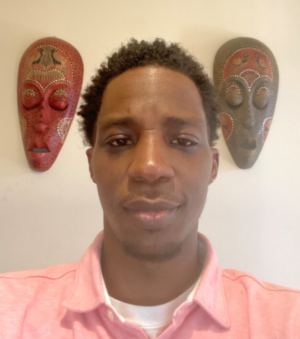Juneteenth: remembering the past to improve the future


Juneteenth (short for ‘June Nineteenth’), is a day that commemorates the emancipation of enslaved people in the United States. It wasn’t until June 19th, 1865 – nearly two years after the Emancipation Proclamation was issued – that all enslaved people were freed.
As an organisation with over 160 years of history, we appreciate the rich background of the many communities we operate in and firmly believe that a diverse society offers better opportunities for everyone. To celebrate this Juneteenth, one of our colleagues, Maurice Miller, took the time to share some personal reflections on his enslaved ancestors and what Juneteenth means to him.
Tell us about yourself and your family history
I am started working for the bank in August 2009. I was born in Brooklyn, New York. However, having lived throughout the South and Midwest, the experience has contributed to my affinity for history. I have a passion for investigations, and enjoy conducting African American genealogical research. My dreams is to encourage the youth to engage in research into genealogy and US history.
My second great grandfather, Rufus Miller, was the grandson of slaves and a World War I veteran. Despite his service and receiving the Croix De Guerre from the French government, he returned to a segregated Virginia where he was relegated to occupations such as janitor and chauffeur.
Genealogy has enabled me to give voices to the voiceless
What is the significance of Juneteenth?
Juneteenth commemorates the day in 1865 when the Union Army arrived in Galveston, Texas and read the Emancipation of Proclamation to the enslaved people of Galveston.
Although enslaved people had received their freedom through the Emancipation Proclamation in 1863, the lack of access to information and Southern resistance had kept the enslaved people of Texas in bondage more than two years after freedom was granted.
Juneteenth should not be looked at as a day that is special only to descendants of the enslaved, but rather a national moment for reflection and a call to action for unity across all racial lines. Acknowledging our dark past is a necessary step towards national healing and should remind us that although freedom was acknowledged on that glorious day in 1865, the move towards a better union needed so much more work before the union was eventually achieved. That passage will always be a living reflection of the ideals passionately laid out in our Constitution.
How do you keep the memory of your ancestors alive?
Researching my family history has been an amazing experience. It ensures that future generations of my family will know their origins and keep the memory of our ancestors alive. To be able to walk into the dwellings and 19th century structures that my ancestors built has reminded me of the sacrifices and contributions they made. This journey has enabled me to give voices to the voiceless by allowing their stories to be told in a manner that is respectful of their memories.
Why is it important for you to share your story?
As time goes on, the lives of our ancestors become lost to time; their stories minimised. My journey has allowed me to give a voice to the forgotten. It also challenges the inaccurate narrative of a dark chapter in American History. When I look at these amazing individuals who collectively made me, I don’t just see slaves or people who were treated as second-class citizens. I see a testament of resilience and pride. I see my fourth great-grandmother Hannah, born a slave, who would eventually sue Washington and Lee University shortly after the civil war as her way of reclaiming the humanity that was too often denied. I see my great grandfather and his father overseas in the two great wars, fighting for democratic values and freedom despite their own struggles back home. I hope that by sharing my story, I will encourage others to trace their own family lineages and ensure that the past is not forgotten so that the future can be better.